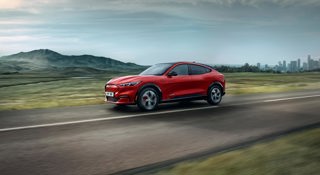The Government is facing a “huge challenge” to achieve its goal of all new car registrations to be zero-emission by 2035, according to a new Public Accounts Committee report.
The report criticises the Government for having no clear plan for how it will increase zero-emission car registrations from 11% to 100% in the next 14 years.
The Committee believes that up-front prices for zero-emission cars are still too high for many consumers and is not convinced the government is on track with the implementation of charging infrastructure.
Meg Hillier MP, chair of the Committee, said: “The Government has a mountain to climb to get to all new cars in the UK emitting zero carbon in the next 14 years: to convince consumers and make the cars appealing, to make the car industry environmentally and socially compliant, to build the necessary infrastructure to support this radical shift and possibly biggest of all, to wean itself off carbon revenues.
“Yet once again what we’ve got is a Government throwing up a few signs around base camp - and no let-up in demand for oversized, petrol- guzzling vehicles.
“This isn’t about more targets with no plan behind them inevitably getting missed - it’s about averting the real-world challenges that are bearing down on all of us. The Government needs to get the country behind it and lead the way in the global race against climate change.”
Echoing its recent report on environmental taxes, which said the Treasury and HMRC seemed “stuck in a bygone era”, with a narrow focus on tax revenues rather than the way they must be used to drive the transition to net zero, the Committee says DfT and BEIS will need to do much more to consider the practical application of this large societal change, and put consumers at the heart of it.
The Departments will need to be on top of the other consequences arising from this transition, including the impact on the skills and capabilities required to support the changeover in the UK vehicle fleet; the environmental and social implications of the switch-over both in the UK and across global supply chains; the impact on our future power needs; and the impact on the government tax-take due to the loss of fuel duties.
Mike Hawes, SMMT chief executive, said: “The automotive industry shares government’s ambition for an electric revolution, a transformation that has already begun. However, as the Public Accounts Committee has made clear, we need a comprehensive and holistic plan to get us there in time. That plan must convince consumers to make the switch, it must provide the incentives that make electric cars affordable for all, and it must ensure recharging is as easy as refuelling – which means a massive and rapid rollout of infrastructure nationwide. Now is the time for government to match its world-leading ambitions with a world-class policy package.”
To date the Departments have no clear published plan setting out how they propose to manage these consequential impacts, who they will need to work with, and the timetables for any action. The onus is on the Departments to show they are on top of all the repercussions and focussed on supporting consumers to shift to electric as they work towards the government’s ambitious goal.
David Watson, CEO and Founder of Ohme, added: “MPs are right to highlight the need for a clearer roadmap towards electrification. But alongside more affordable EVs and investments in charging infrastructure, we also need to see a focus on rolling out smart charging solutions at scale. Not only will this significantly lower the running costs of EVs for drivers, but it will also future proof the grid in the face of increased energy demand as EVs becomes mainstream.”
The Government says it is on track to achieve its 2035 targets. A spokesman said it was investing £2.8bn to help the car industry and drivers make the switch to electric.





















Login to comment
Comments
No comments have been made yet.